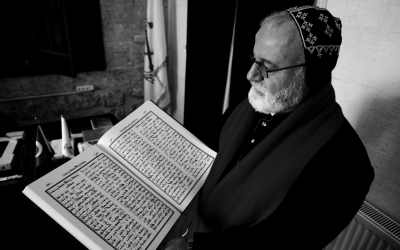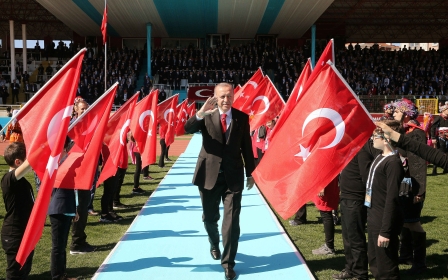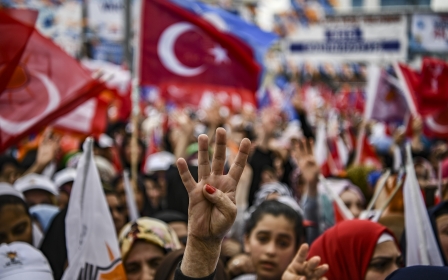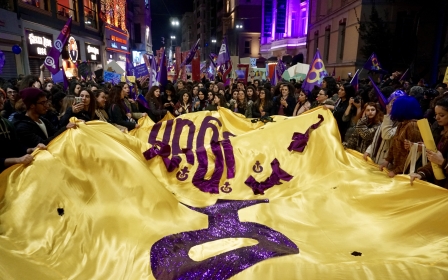Turkish youth increasingly secular and modern under Erdogan, poll finds

Turkish President Recep Tayyip Erdogan once declared that raising a pious generation was among his duties as the head of government.
His ruling Justice and Development Party, which describes itself as conservative democrat, has bolstered religious studies in public schools and opened hundreds of Imam-Hatip schools which offer religious education for middle and high school students throughout the country.
'You get secularization if you have these three components:
urbanisation, capitalism and science. We have them'- Volkan Ertit, Aksaray University
Yet a new survey by an Istanbul-based polling company suggests that Turkish youth have become considerably more secular under Erdogan's rule, with more modern outlooks on life and better education.
In the survey released on Monday, the Konda polling company compared the opinions of Turkish citizens between the ages of 15 to 29 from 2008 to data taken last year. Over 1,700 people were interviewed.
According to the survey, the number of Turkish youth who consider themselves to be religious has dropped from by 7 percent to 15 percent overall. Young people who describe themselves as “modern” also increased to 43 percent from 34 percent in 2008.
New MEE newsletter: Jerusalem Dispatch
Sign up to get the latest insights and analysis on Israel-Palestine, alongside Turkey Unpacked and other MEE newsletters
Volkan Ertit, a scholar at Aksaray University who researches secularization in Turkey, told Middle East Eye that the survey only confirms other recent academic work that have shown similar trends, including studies on the increase in sex before marriage.
“In all honesty, this is not about Erdogan," said Ertit. "If you had Turkish opposition leader Kemal Kilicdaroglu or late Islamic-oriented leader Necmettin Erbakan as the president, the results would have been the same.
"You cannot control the trajectory of society. You get secularization if you have these three components: urbanisation, capitalism and science. We have them.”
The poll found significant shifts in how young people practice their religion with the number of those who fast dropping 16 percent to 58 percent total. There was also a three percent fall among those who pray daily to 24 percent.
Ertit said it's now clear that opening Imam-Hatip schools has not helped the government deliver the pious generation Erdogan spoke about.
“Different studies show students at those schools increasingly having the same lifestyle [as] non-religious school students. It changes everything if you have smartphones, and the internet. Talk to a Imam-Hatip student. They would tell you that they have flirting in their school," he said.
Erdogan last year was taped as he reprimanded then-minister of education, Ismet Yilmaz, about a survey conducted by the ministry’s local branch in the city of Konya, which showed that many Imam-Hatip students believed in God but had a disdain for established religion
“It can’t be!” Erdogan told the minister in comments captured by an open mic.
The poll also indicates that young people are becoming more tolerant. The respondents who say they can have a son-in-law or daughter-in-law with different religious beliefs increased by 17 percent to 64 percent. Interviewees who said they would be okay if their children had different sexual orientations than them rose 9 percent to 21 percent.
The research shows that young Turks are also more educated and more hopeful about the future than their peers a decade ago. Forty five percent of the respondents said conditions in their lives changed for the better in the past five years and 46 percent said they believe the next five years will be better than now.
This article is available in French on Middle East Eye French edition.
Middle East Eye delivers independent and unrivalled coverage and analysis of the Middle East, North Africa and beyond. To learn more about republishing this content and the associated fees, please fill out this form. More about MEE can be found here.





